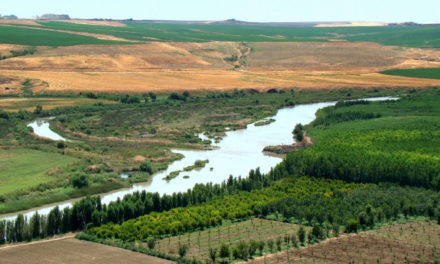On December 18, 2018 the cabinet under Prime Minister Adil Abdul-Mahdi voted to postpone the provincial elections indefinitely. Postponing provincial elections has hurt both Iraq’s federalism and democratization. The provincial councils have overstayed their term by over a year now, and, in some provinces, it has been longer than that. With a swath of angry protests engulfing Iraq’s south this past summer, it is long overdue for citizens to have the opportunity to vote for change at the local level.
The reasoning behind postponing provincial elections the first time in 2017 was that significant areas of the country were still occupied by Da’ish and impossible to hold elections there. In addition, the war effort put a financial strain on the country’s budget that would make it more cost efficient to hold provincial and parliamentary elections simultaneously. However, the provincial elections would be postponed once again to December 22, 2018 and only the parliamentary elections were held on May 12, 2018. This proved that it was not only logistics and finances that forced the provincial elections not to be held in 2017 or 2018, but also a lack of will from the political class.
Many governors in both 2014 and 2018 ran in the parliamentary election to use their own popularity for votes and have someone else take their place in parliament if elected. In the case of Basra today, it is currently in limbo because its governor Assad Al-Eidani cannot decide whether to remain as governor or become a member of parliament. This is why provincial elections need to happen soon in order to have new governors and provincial councils who are committed to their province on the local level of governance.
Assad Al-Eidani came to office on August 27, 2017 to replace the previous governor, Majid Al-Nasrawi who fled the country after corruption charges were filed against him. Nine months into the role as governor, Eidani ran in the parliamentary election with the Nasr coalition and won a seat in parliament. He used this electoral win to escape to the capital when protests erupted in Basra this past summer. He could have been excused on the basis of taking on new responsibilities as an MP to represent Basra in Baghdad; except that has not been the case as he has yet to be sworn in as an MP and since the summer ended, he has resumed his duties as a governor.
Basra continues to face protests from dissatisfied citizens and the governor has yet to decide in what capacity he wants to represent the people of Basra. Eidani has yet to allow someone else from his electoral list to take his seat in parliament if he is to remain as governor, and he has yet to take the oath as an MP and let the provincial council of Basra elect a new governor. This shows both Eidani’s indecisiveness and the lack of concern for the people of Basra, which he recently showed when exiting his vehicle to physically attack a protestor before being held back by his own bodyguards.
Other governors that ran in the 2018 election and decided which route to take are: Baghdad governor Atwan Al-Atwani, Babil governor Sadiq Al-Sultani and Anbar governor Mohammad Al-Halbousi. The governor of Anbar, Halbousi, won a seat and later became the speaker of parliament. The governors of Baghdad and Babil both left their posts to become MPs as well. Previously in 2014, the former governor of Najaf, Adnan Al-Zurfi and the former governor of Kirkuk, Najmaldin Karim won seats in the election, using their popularity at the time for votes. However, they both decided to keep their position as governor and allow someone else from their list to become an MP, someone the people did not vote for to represent them.
Governors running in parliamentary elections and not accepting their new position is wrong as it cheats the people in having representation they did not choose in the parliamentary election or have a scenario like Basra, where the province is put in disarray because the governor cannot decide between federal and provincial responsibility. Amendments should be made for future parliamentary elections that would force officials such as governors to step down from their position before campaigning, just like how security officials have to step down beforehand if they run for office. This would force a governor to make their decision before elections are held because at the moment, the law only restricts officials from holding two positions at the same time and that is interpreted as only if an official wins a seat not while they run in parliamentary elections.
In order for provinces to be empowered and decentralization to be taken seriously, provincial elections need to be held on time and governors and provincial councils need to hold greater legitimacy amongst the people. Citizens will not have confidence in their local representatives if provincial council members go unelected for too long and governors are not committing to either provincial or federal politics. With the new federal government still incomplete in forming a full cabinet and many issues lingering from the May 2018 elections concerning the Independent High Electoral Commission, the Iraqi state has a lot to deal with if it is to hold provincial elections in 2019.

Hamzeh Hadad
Hamzeh Hadad is an Iraqi writer and commentator. He is currently a Master of Arts candidate at the Norman Paterson School of International Affairs.










